Membangun Kepuasan Karir Dengan Kecerdasan Emosional Dan Perilaku Inovatif: Moderasi Efikasi Diri
DOI:
https://doi.org/10.30587/jurnalmanajerial.v11i01.6186Keywords:
Emotional, Intelligence, Innovative, Behavior, Efficasy, SatisfactionAbstract
Background – Observing the practical conditions at the bank, frontline employees are the main gateway for the company to serve customers. Frontline employees as an indicator of success in customer service. Employees in the service department often experience stress when dealing with many customers with various problems and characters. Therefore, emotional intelligence and innovative behavior are needed in providing services in dealing with customers in different ways. Innovative behavior can encourage career satisfaction for private bank employees in Surabaya.
Objectives – This research examines the moderating influence of emotional intelligence, innovative behavior, career satisfaction, and self-efficacy.
Design/ Method/ Approach - The research method uses a quantitative explanatory research design. Questionnaires are used to collect data either directly from respondents or through the Google form. Purposive sampling technique was used to take samples from 156 private bank employees in Surabaya. The collected data were analyzed using SEM-PLS.
Results and Discussion – The research results show that emotional intelligence has a positive and significant effect on innovative behavior. Innovative behavior has a positive and significant effect on employee career satisfaction, Emotional intelligence has a positive and significant effect on career satisfaction, Innovative behavior mediates between emotional intelligence and career satisfaction, Self-efficacy moderates between emotional intelligence and innovative behavior, Self-efficacy moderates between emotional intelligence and employee career satisfaction private bank in Surabaya.
Conclusion – Emotional intelligence can increase innovative behavior and career satisfaction. Innovative behavior can mediate emotional intelligence and career satisfaction. Self-efficacy can moderate between emotional intelligence on innovative behavior and emotional intelligence on career satisfaction.
Research Implications – This study provides recommendations to private bank leaders in Surabaya to pay attention to managing and motivating emotional intelligence, innovative behavior, self-efficacy, and employee career satisfaction to improve performance.
Research Limitations - The research sample was only private bank employees in the Surabaya area. Comparative research can be conducted on government bank employees to compare findings. This research was carried out in a cross section manner where only observations were made at the time of the research, preferably requiring longitudinal research.
References
Abele, A. E., & Spurk, D. (2009). The longitudinal impact of self-efficacy and career goals on objective and subjective career success. Journal of Vocational Behavior, 74(1), 53–62. https://doi.org/10.1016/j.jvb.2008.10.005
Abqari, L. S., Mulyana, A., Yunizar, & Rahman, M. F. W. (2023). Kecerdasan emosional, adaptabilitas karier, dan kepuasan karier pada front line employees. Jurnal Ilmu Manejemen, 11(1), 51–64. http://manajemen.fe.uny.ac.id/sites/manajemen.fe.uny.ac.id/files/Volume 12, Nomor 1, Januari 2015.pdf#page=7
Al-omari, M. (2017). Engineers Innovative Work Behavior : The Role of Emotional Intelligence. European Journal of Business and Management, 9(21), 8–18.
Bandura, A. (2011). A Social Cognitive perspective on Positive Psychology. Revista de Psicologia Social, 26(1), 7–20. https://doi.org/10.1174/021347411794078444
Baroudi, S. El, Fleisher, C., Khapova, S. N., Jansen, P., & Richardson, J. (2017). Ambition at work and career satisfaction: the mediating role of taking charge behavior and the moderating role of pay. Career Development International, 22(1), 87–102.
Bucich, M., & MacCann, C. (2019). Emotional intelligence research in Australia: Past contributions and future directions. Australian Journal of Psychology, 71(1), 59–67. https://doi.org/10.1111/ajpy.12231
Carmeli, A., Reiter-Palmon, R., & Ziv, E. (2010). Inclusive leadership and employee involvement in creative tasks in the workplace: The mediating role of psychological safety. Creativity Research Journal, 22(3), 250–260. https://doi.org/10.1080/10400419.2010.504654
Chu, K. H., Baker, M. A., & Murrmann, S. K. (2012). When we are onstage, we smile: The effects of emotional labor on employee work outcomes. International Journal of Hospitality Management, 31(3), 906–915. https://doi.org/10.1016/j.ijhm.2011.10.009
Chughtai, A. (2018). Authentic leadership, career self-efficacy and career success: a cross-sectional study. Career Development International, 23(6–7), 595–607. https://doi.org/10.1108/CDI-05-2018-0160
Csikszentmihalyi, M. (2014). Flow and the foundations of positive psychology: The collected works of Mihaly Csikszentmihalyi. Flow and the Foundations of Positive Psychology: The Collected Works of Mihaly Csikszentmihalyi, 1–298. https://doi.org/10.1007/978-94-017-9088-8
Dan, X., Xu, S., Liu, J., Hou, R., Liu, Y., & Ma, H. (2018). Innovative behaviour and career success: Mediating roles of self-efficacy and colleague solidarity of nurses. International Journal of Nursing Sciences, 5(3), 275–280. https://doi.org/10.1016/j.ijnss.2018.07.003
De Jong, J., & Den Hartog, D. (2010). Measuring innovative work behaviour. Creativity and Innovation Management, 19(1), 23–36. https://doi.org/10.1111/j.1467-8691.2010.00547.x
Deery, M., & Jago, L. (2015). Revisiting talent management, work-life balance and retention strategies. International Journal of Contemporary Hospitality Management, 27(3), 453–472. https://doi.org/10.1108/IJCHM-12-2013-0538
Dincer, H., & Orhan, N. (2012). Relationship between emotional intelligence and innovative work behaviors in Turkish banking sector. International Journal of Finance & Banking Studies (IJFBS), 1(1), 21–28. https://doi.org/10.20525/ijfbs.v1i1.133
Eliyana, A., Ma’arif, S., & Muzakki. (2019). Job satisfaction and organizational commitment effect in the transformational leadership towards employee performance. European Research on Management and Business Economics, 25(3), 144–150. https://doi.org/10.1016/j.iedeen.2019.05.001
Getz, I., & Robinson, A. G. (2003). Innovate or die: Is that a fact? Creativity and Innovation Management, 12(3), 130–136. https://doi.org/10.1111/1467-8691.00276
Gibson, J. L., Ivancevich, J. M., James H. Donnelly, J., & Konopaske, R. (2015). Organizations Behavior, Structure, Processes ((14th ed.)). McGraw-Hill.
Goleman, D. (2000). Working With Emotional Intelligence (terjemahan). Jakarta: PT. Gramedia Pustaka Utama. https://doi.org/10.1016/j.tmp.2019.03.011
Greenhaus, J. H., Parasuraman, S., & Wormley, W. M. (1990). Effects of Race on Organizational Experience, Job Performance Evaluations, and Career Outcomes. Academy of Management Journal, 33(1), 64–86. https://doi.org/10.2307/256352
Hair, J. F., Black, W. C., Babin, B. J., & Anderson, R. E. (2019). Multivariate Data Analysis (8 th Editi). Cengage Learning, EMEA, Hampshire, UK.
Harjanti, D., & Noerchoidah, N. (2017). the Effect of Social Capital and Knowledge Sharing on Innovation Capability. Jurnal Manajemen Dan Kewirausahaan, 19(2), 72–78. https://doi.org/10.9744/jmk.19.2.72-78
HS Winarti, E., & Suharnomo. (2015). Analysis of Innovative Behavior and Loyal Attitude toward Career Satisfaction with the Performance of Lecturers as Intervening Variables ( Empirical Studies on the Kopertis Region VI in Indonesia ). American International Journal of Contemporary Research, 5(2), 157–170.
Indriyani, R., Noerchoidah, & Latif, N. (2022). Peran Creative Self Efficacy Memediasi Antara Entrepreneurial Leadership Dan. Equilibrium: Jurnal Ekonomi-Manajemen-Akuntansi, 18(April), 1–9.
Ivcevic, Z., Brackett, M. A., & Mayer, J. D. (2007). Emotional intelligence and emotional creativity. Journal of Personality, 75(2), 199–236. https://doi.org/10.1111/j.1467-6494.2007.00437.x
Jiang, W., & Gu, Q. (2017). Leader creativity expectations motivate employee creativity: a moderated mediation examination. International Journal of Human Resource Management, 28(5), 724–749. https://doi.org/10.1080/09585192.2015.1109535
Kotsou, I., Mikolajczak, M., Heeren, A., Grégoire, J., & Leys, C. (2019). Improving Emotional Intelligence: A Systematic Review of Existing Work and Future Challenges. Emotion Review, 11(2), 151–165. https://doi.org/10.1177/1754073917735902
Lee, C. I. S. G., Bosco, F. A., Steel, P., & Uggerslev, K. L. (2017). A Metabus Enabled Meta-Analysis Of Career Satisfaction. Career Development International, 1–31.
Lee, J. H. J., & Ok, C. (2012). Reducing burnout and enhancing job satisfaction: Critical role of hotel employees’ emotional intelligence and emotional labor. International Journal of Hospitality Management, 31(4), 1101–1112. https://doi.org/10.1016/j.ijhm.2012.01.007
Lupiyoadi, R. (2014). Manajemen pemasaran jasa: Berbasis kompetensi (Edisi 3). Salemba Empat.
Mayer, J. D., Roberts, R. D., & Barsade, S. G. (2008). Human abilities: Emotional intelligence. Annual Review of Psychology, 59, 507–536. https://doi.org/10.1146/annurev.psych.59.103006.093646
McClelland, D. C. (1965). Toward a Theory of Motive Acquisition. The American Psychologist, 20(35), 321–333. https://doi.org/10.1037/h0022225
Niu, H. J. (2010). Investigating the effects of self-efficacy on foodservice industry employees’ career commitment. International Journal of Hospitality Management, 29(4), 743–750. https://doi.org/10.1016/j.ijhm.2010.03.006
Noerchoidah, Ariprabowo, T., & Nurdina. (2022). Efikasi Diri dan Perilaku Inovatif: Peran Dukungan Organisasi. Jurnal Ilmu Manajemen, 10(4), 1026–1036.
Noerchoidah, Indriyani, R., & Fatimah, N. (2023). Peran Keterlibatan Kerja Terhadap Perilaku Inovatif dan Kinerja (Studi pada Industri Kreatif). Buletin Bisnis Dan Manajemen, 9(1), 104–117.
Noerchoidah, Nurdina, & Ariprabowo, T. (2022). Orientasi Pembelajaran Dan Perilaku Kerja Inovatif (Peran Efikasi Diri Kreatif Pada UKM). Jurnal Manajerial, 09(1), 16–33.
Orhan, N., & Dincer, H. (2012). The Impacts Of Emotional Intelligence Competency On Job Satisfaction In The Service Sector: An Application On The Turkish Banking Sector. Asian Economic and Financial Review, 2(5), 617–634. https://doi.org/10.48064/equinox.1060496
Pathardikar, A. D., Sahu, S., & Jaiswal, N. K. (2016). Assessing organizational ethics and career satisfaction through career commitment. South Asian Journal of Global Business Research, 5(1), 104–124. https://doi.org/10.1108/sajgbr-02-2015-0017
Plouffe, C. R., Bolander, W., Cote, J. A., & Hochstein, B. (2016). Does the customer matter most? Exploring strategic frontline employees’ Influence of customers, the internal business team, and external business partners. Journal of Marketing, 80(1), 106–123. https://doi.org/10.1509/jm.14.0192
Sánchez-Álvarez, N., Extremera, N., & Fernández-Berrocal, P. (2015). The relation between emotional intelligence and subjective well-being: A meta-analytic investigation. The Journal of Positive Psychology, 1–12. https://doi.org/10.1080/17439760.2015.1058968
Schmidt, A. M., & DeShon, R. P. (2010). The Moderating Effects of Performance Ambiguity on the Relationship Between Self-Efficacy and Performance. Journal of Applied Psychology, 95(3), 572–581. https://doi.org/10.1037/a0018289
Scott, S. G., & Bruce, R. A. (1994). Determinants Of Innovative Behavior: A Path Model Of Individual Innovation In The Workplace. Academy of Management Journal, 37(03), 580–607. https://doi.org/10.5860/choice.32-1325
Shuo, Z., Xuyang, D., Xin, Z., Xuebin, C., & Jie, H. (2022). The Relationship Between Postgraduates’ Emotional Intelligence and Well-Being: The Chain Mediating Effect of Social Support and Psychological Resilience. Frontiers in Psychology, 13(June), 1–9. https://doi.org/10.3389/fpsyg.2022.865025
Skålén, J. K. P. (2015). Exploring front-line employee contributions to service innovation. The Eletronic Library, 49(9), 1–35.
Slåtten, T. (2014). Determinants and effects of employee’s creative self-efficacy on innovative activities. International Journal of Quality and Service Sciences, 6(4), 326–347. https://doi.org/http://dx.doi.org/10.1108/MRR-09-2015-0216
Sparks, B., & McCann, J. (2021). Emotional Intelligence, Locus of Control, and Innovative Work Behavior: a Study of Engineers Working in the United States. 2021 ASEM Virtual International Annual Conference “Engineering Management and The New Normal,” 180–189.
Srikanth, A. P. B., & Israel, D. (2012). Career Commitment & Career Success : Mediating Role of Career Satisfaction. Indian Journal of Industrial Relations, 48(1), 137–149.
Suliman, A. M., & Al-Shaikh, F. N. (2007). Emotional intelligence at work: Links to conflict and innovation. Employee Relations, 29(2), 208–220. https://doi.org/10.1108/01425450710720020
Sultana, R., Yousaf, A., Khan, I., & Saeed, A. (2016). Probing the interactive effects of career commitment and emotional intelligence on perceived objective/subjective career success. Personnel Review, 45(4), 1–23. https://doi.org/10.1108/PR-11-2014-0265
Tierney, P., & Farmer, S. M. (2011). Creative Self-Efficacy Development and Creative Performance Over Time. Journal of Applied Psychology, 96(2), 277–293. https://doi.org/10.1037/a0020952
Wijaya, A. (2019). Metode penelitian menggunakan smart PLS 03. Yogyakarta: Innosain.
Yitshaki, R. (2012). How Do Entrepreneurs’ Emotional Intelligence and Transformational Leadership Orientation Impact New Ventures’ Growth?*. Journal of Small Business and Entrepreneurship, 25(3), 357–374. https://doi.org/10.1080/08276331.2012.10593578
Yuan, F., & Woodman, R. W. (2010). Innovative Behavior in the Workplace: the Role of Performance and Image Outcome Expectations. Academy Of Management Journal, 53(2), 323–341. https://doi.org/https://www.jstor.org/stable/25684323

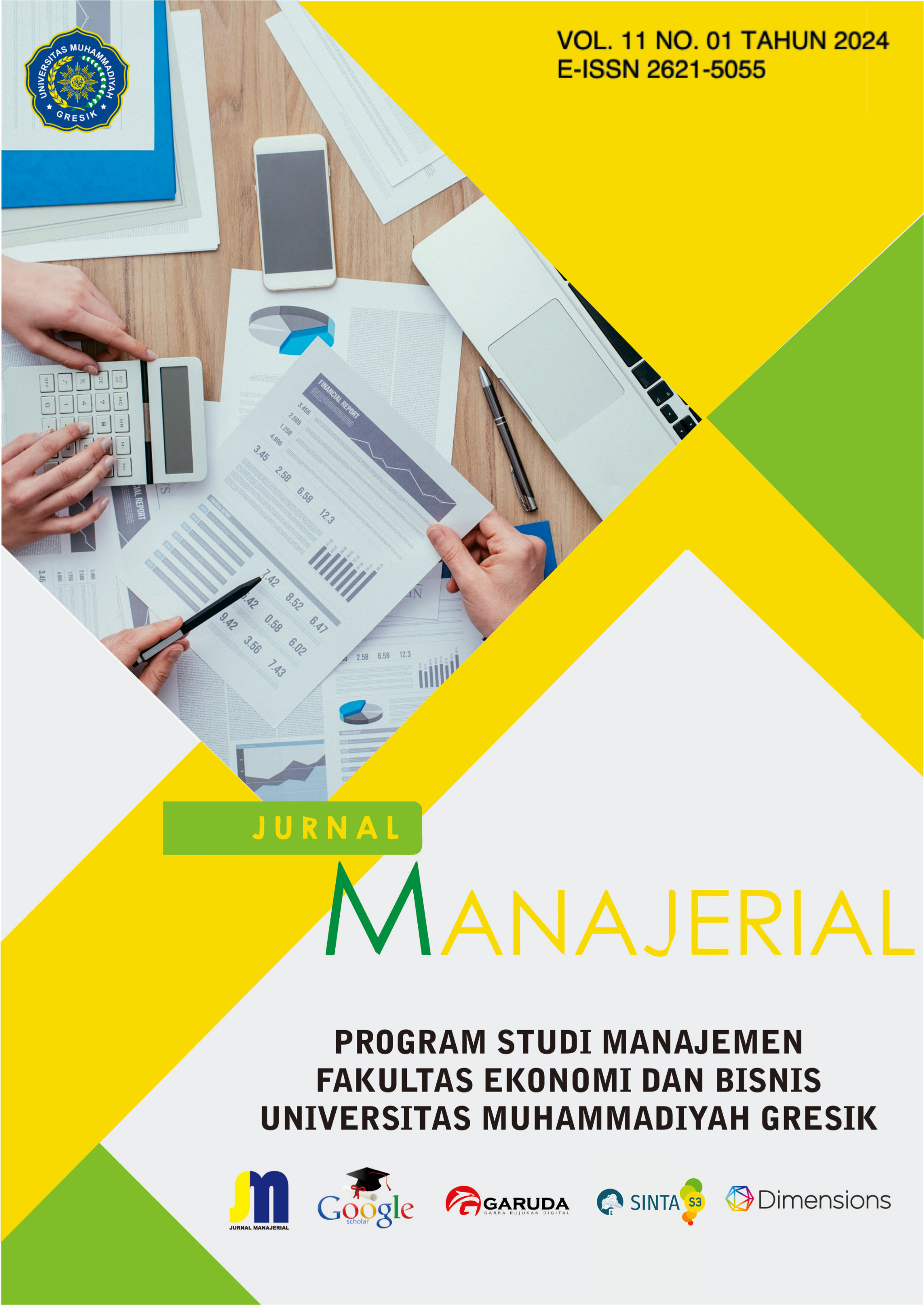





















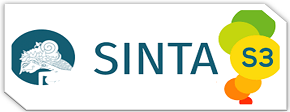
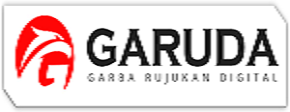

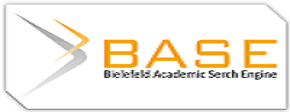

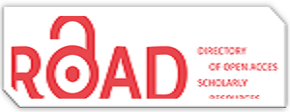

 P-ISSN: 2354-8592 __ E-ISSN: 2621-5055
P-ISSN: 2354-8592 __ E-ISSN: 2621-5055 
